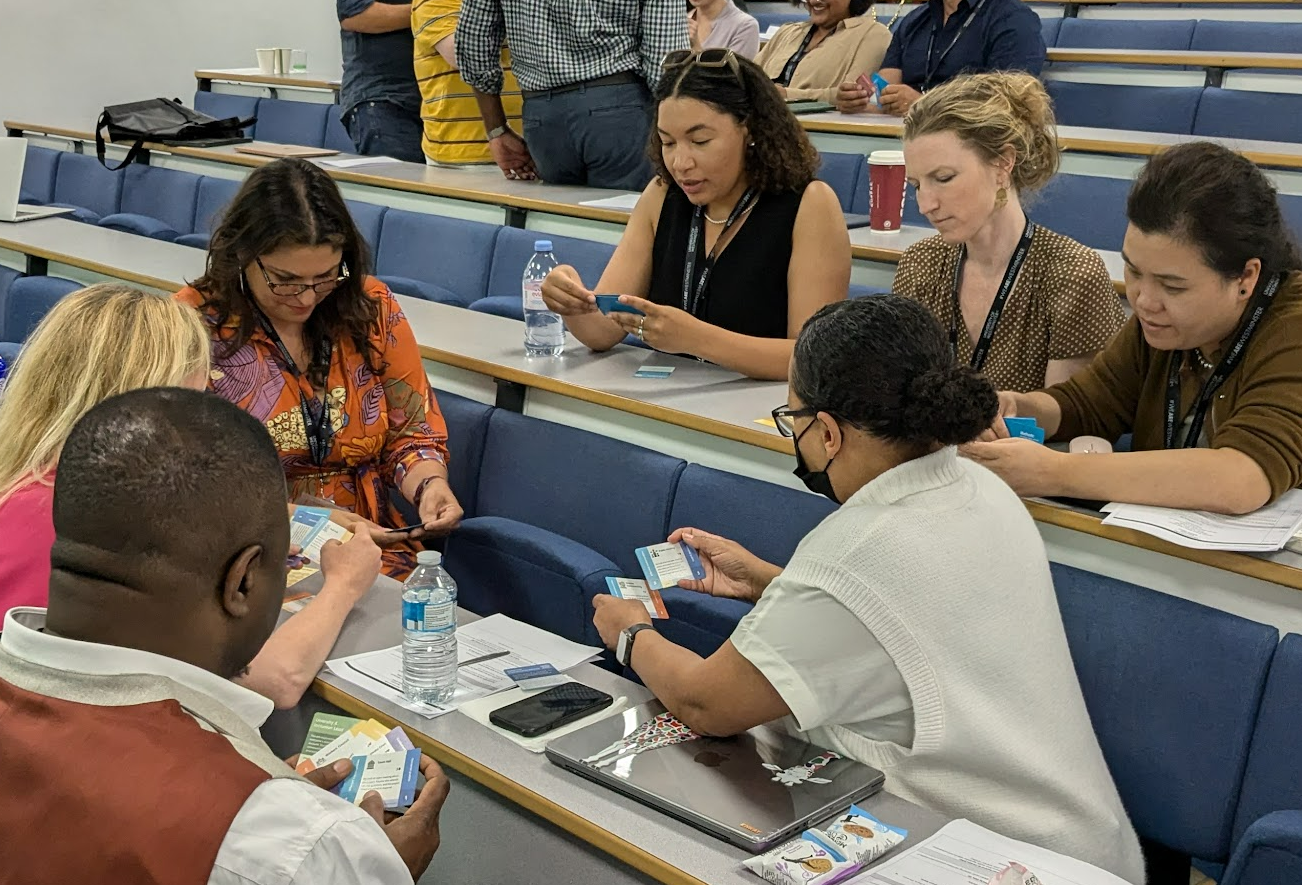

Tim led a workshop session at the University of Westminister Communication and Media Research Institute (CAMRI) conference ‘Regulating Digital Media in the Global South’ exploring different approaches to embedding public voice in data and AI governance.
Slides from the session are included below:
The workshop built upon six projects Connected by Data has been involved in:
- Case studies on participatory data governance in practice (ongoing) that demonstrate how effective public voice involves interlocking engagement strategies;
- The Governance Game design lab (ongoing) that is exploring ways to eqiup industry practitioners to adopt particatory practices;
- The Open Government Commitments on Data & AI design lab (Tallinn, 2023) that developed policy proposals for governments to embed participatory mechanisms within the work of sectoral regulators
- The People’s Panel on AI @ the AI Safety Summit (2023 that we draw on to argue that public voice is needed within global debates on AI Governance;
- Our collaboration with the Global Voices Data Narrative Observatory (2024), which highlights how voices from the Global South provide alternative perspectives on dominant narratives around data and AI; and
- The Options for a Global Citizens Assembly on AI design lab (2024) in which we are exploring how an inclusive, plural, global dialogue on AI governance could be possible.
During the workshop, we used cards from The Good Governance Game to encourage discussion around the approaches that can be taken to give affected communities voice in different country contexts. Although time for discussion was limited, the activity solicited feedback on different country contexts where:
- It can be important to be aware of existing power structures such as local chiefs and leaders, or national governments buy-in for any dialogue process;
- The cost and complexity of participatory processes can be a big challenge: underlining the importance of securing buy-in from senior stakeholders in organisations development engagement plans;
- Certain methods (Public Hearing etc.) may be more legible, but perhaps less connected to grassroots influence.
Feedback for Governance Game development: To use the cards in a cut-down setting without a full round of the game, I had removed all but the ‘role’ and ‘method’ cards from the deck, but still included budget constraints in the instructions I gave. On reflection, I could have made this even simpler, omitting the role cards (which mostly added an understanding overhead to a tight 15-minute activity) and perhaps highlighting bits of the cards to pay attention to (not budget or the suit ♠♥♦♣ symbols!). At the end of the session, someone came and shared with me pointers to https://digitalcollage.org/ and https://en.2tonnes.org/ as good examples of workshop websites for game-based-learning tools, and suggested producing cards in a larger format.

The session ended with a brief clip from the People’s Panel on AI, and an introduction to the Options for a Global Citizens Assembly on AI, inviting conference participants to look at three stylised options for global deliberation and to provide feedback on which they prefer.
The worksheet and feedback form for the activity remains open to input for the next few weeks.